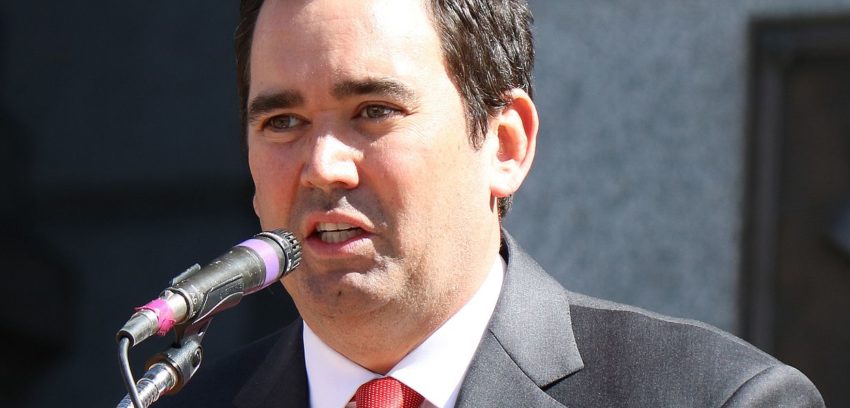Walker Stapleton has pledged to be a steward of Colorado’s water, but facilities he ran for years in California wine country were found in violation of water regulations more than 75 times, including instances of using tens of thousands more gallons of water than allowed.
For the past 13 years, Stapleton, Colorado’s state treasurer and the GOP nominee for governor, has been the top executive or owner of SonomaWest Holdings Inc., which offers wastewater-treatment facilities for vintners and agricultural companies in Sonoma County, Calf.
When he took office in 2011, Stapleton placed the company and other assets into a blind trust — Rocky Mountain Trust LLC — but remained a consultant for the company with an annual salary up to $150,000, while his father took over as CEO.
According to data from the California Environmental Protection Agency, SonomaWest’s two facilities near Sebastopol racked up more than 75 violations of the state’s water code since 2013, including 11 this year.
The company was cited on at least 11 occasions for high levels of coliform, which can cause illness and indicate the possible presence of other harmful bacteria like E. coli, at its facility that sits in the Russian River watershed.
In August 2016, the agency found the company had gone over the 6,000-gallon daily limit for water use by using more than 43,000 gallons. In all, the company went over the water limit 16 times, using 105,750 gallons more water than allowed on those days alone.
Tim Moran, a spokesman for the California State Water Resources Control Board, said while SonomaWest had not been fined for its violations, the company is facing an order this fall to come into compliance with its permit or risk fines or a referral to the state’s attorney general.
While water usage has been a contentious issue in California for decades, Colorado is steeling itself for a fight of its own.
According to a 2014 report by the Western Water Assessment, a project of the University of Colorado Boulder, and the Colorado Water Conservation Board, climate change — on top of a growing population — will put pressure on the state’s water supply, as it deals with more fires and droughts.
“The future warming is projected to generally reduce Colorado’s spring snowpack, cause earlier snowmelt and runoff, and increase the water use by crops, landscaping, and natural vegetation,” according to the report.

